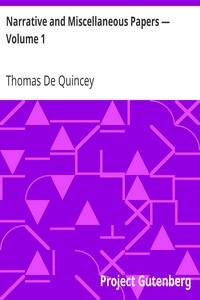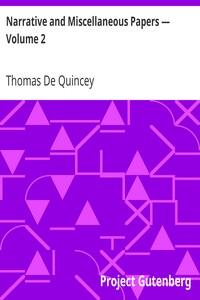Read this ebook for free! No credit card needed, absolutely nothing to pay.
Words: 84047 in 40 pages
This is an ebook sharing website. You can read the uploaded ebooks for free here. No credit cards needed, nothing to pay. If you want to own a digital copy of the ebook, or want to read offline with your favorite ebook-reader, then you can choose to buy and download the ebook.


: Tales of the Punjab: Folklore of India by Steel Flora Annie Webster Temple Richard Carnac Sir Commentator - Folklore India; Panjabis (South Asian people) Folklore; Tales India Punjab
PREFACE To the Little Reader
Sir Buzz The Rat's Wedding The Faithful Prince The Bear's Bad Bargain Prince Lionheart and his Three Friends The Lambkin Bopol?ch? Princess Aubergine Valiant Vicky, the Brave Weaver The Son of Seven Mothers The Sparrow and the Crow The Tiger, the Br?hman, and the Jackal The King of the Crocodiles Little Anklebone The Close Alliance The Two Brothers The Jackal and the Iguana The Death and Burial of Poor Hen-Sparrow Princess Pepperina Peasie and Beansir The Jackal and the Partridge The Snake-woman and King Ali Mardan The Wonderful Ring The Jackal and the Pea-hen The Grain of Corn The Farmer and the Money-lender The Lord of Death The Wrestlers The Legend of Gw?shbr?ri, the Glacier-Hearted Queen The Barber's Clever Wife The Jackal and the Crocodile How Raja Ras?lu Was Born How Raja Ras?lu Went Out Into the World How Raja Ras?lu's Friends Forsook Him How Raja Ras?lu Killed the Giants How Raja Ras?lu Became a J?gi How Raja Ras?lu Journeyed to the City of King Sarkap How Raja Ras?lu Swung the Seventy Fair Maidens, Daughters of the King How Raja Ras?lu Played Chaupur with King Sarkap The King Who Was Fried Prince Half-a-Son The Mother and Daughter Who Worshipped the Sun The Ruby Prince
Notes to the Tales
Then comes the need for patience, since in all probability the first story is one you have heard a hundred times, or else some pointless and disconnected jumble. At the conclusion of either, however, the teller must be profusely complimented, in the hopes of eliciting something more valuable. But it is possible to waste many hours, and in the end find yourself possessed of nothing save some feeble variant of a well-known legend, or, what is worse, a compilation of oddments which have lingered in a faulty memory from half a dozen distinct stories. After a time, however, the attentive collector is rewarded by finding that a coherent whole is growing up in his or her mind out of the shreds and patches heard here and there, and it is delight indeed when your own dim suspicion that this part of the puzzle fits into that is confirmed by finding the two incidents preserved side by side in the mouth of some perfectly unconscious witness. Some of the tales in this volume have thus been a year or more on the stocks before they had been heard sufficiently often to make their form conclusive.
And this accounts for what may be called the greater literary sequence of these tales over those to be found in many similar collections. They have been selected carefully with the object of securing a good story in what appears to be its best form; but they have not been doctored in any way, not even in the language. That is neither a transliteration--which would have needed a whole dictionary to be intelligible--nor a version orientalised to suit English tastes. It is an attempt to translate one colloquialism by another, and thus to preserve the aroma of rough ready wit existing side by side with that perfume of pure poesy which every now and again contrasts so strangely with the other. Nothing would have been easier than to alter the style; but to do so would, in the collector's opinion, have robbed the stories of all human value.
That such has been the deliberate choice may be seen at a glance through the only story which has a different origin. The Adventures of Raja Ras?lu was translated from the rough manuscript of a village accountant; and, being current in a more or less classical form, it approaches more nearly to the conventional standards of an Indian tale.
The work has been apportioned between the authors in this way. Mrs. F. A. Steel is responsible for the text, and Major R. C. Temple for the annotations.
It is therefore hoped that the form of the book may fulfil the double intention with which it was written; namely, that the text should interest children, and at the same time the notes should render it valuable to those who study Folklore on its scientific side.
TO THE LITTLE READER
Would you like to know how these stories are told? Come with me, and you shall see. There! take my hand and do not be afraid, for Prince Hassan's carpet is beneath your feet. So now!--'Hey presto! Abracadabra!' Here we are in a Punjabi village.
No, no!--from sunrise to sunset, when even the little ones must labour, not a word; but from sunset to sunrise, when no man can work, the tongues chatter glibly enough, for that is story-telling time. Then, after the scanty meal is over, the bairns drag their wooden-legged, string-woven bedsteads into the open, and settle themselves down like young birds in a nest, three or four to a bed, while others coil up on mats upon the ground, and some, stealing in for an hour from distant alleys, beg a place here or there.
The stars twinkle overhead, the mosquito sings through the hot air, the village dogs bark at imaginary foes, and from one crowded nest after another rises a childish voice telling some tale, old yet ever new,--tales that were told in the sunrise of the world, and will be told in its sunset. The little audience listens, dozes, dreams, and still the wily Jackal meets his match, or Bopol?ch? brave and bold returns rich and victorious from the robber's den. Hark!--that is Kaniy?'s voice, and there is an expectant stir amongst the drowsy listeners as he begins the old old formula--
Free books android app tbrJar TBR JAR Read Free books online gutenberg
More posts by @FreeBooks

: The Home of the Blizzard Being the Story of the Australasian Antarctic Expedition 1911-1914 by Mawson Douglas Sir - Antarctica Discovery and exploration; Australasian Antarctic Expedition (1911-1914)


: Bars and Shadows: The Prison Poems of Ralph Chaplin by Chaplin Ralph Nearing Scott Author Of Introduction Etc - Imprisonment Poetry; Prisoners' writings American; Prisons United States Poetry






